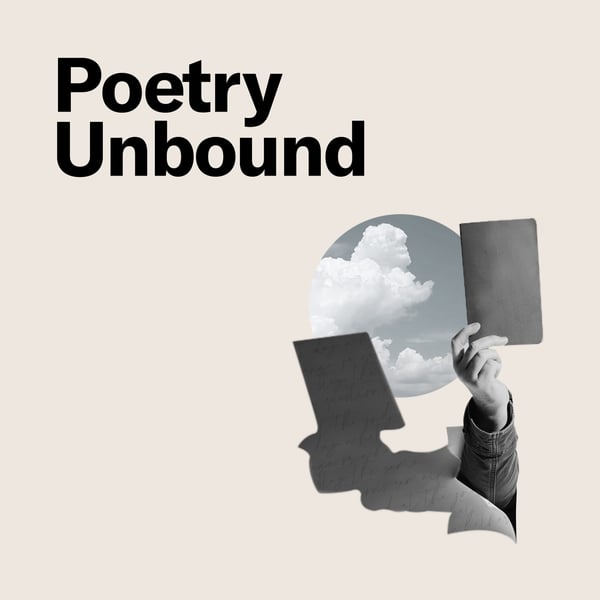Jónína Kirton — Reconciliation
Poetry Unbound
On Being Studios
4.9 • 3.6K Ratings
🗓️ 3 May 2021
⏱️ 14 minutes
🧾️ Download transcript
Summary
Transcript
Click on a timestamp to play from that location
| 0:00.0 | My name is Podrigotumma and poetry and reconciliation have a particular kind of relationship with each other in the experiences that I've had. |
| 0:11.0 | Sometimes I think a poem might seek to bring all kinds of resolve, but reconciliation is an ongoing process rather than something that's reached once and then you stay there forever. |
| 0:23.0 | Reconciliation doesn't work as a final event. Reconciliation is a continual truth telling and there's tension in that rather than easy resolve. |
| 0:41.0 | Reconciliation by Jornina Curtin |
| 0:46.0 | How will I reconcile myself, the Icelander and the matey, the settler and the indigenous, and ally to myself since birth flung across a chasm? |
| 1:00.0 | I often wonder am I to forever be the way across, weak anchors at each end, my spine a flexible deck, load bearing and within my cables too much tension. |
| 1:15.0 | As some try to cross we all swing wildly in each other's steps without safety nets, the waves of emotion threaten us all. |
| 1:25.0 | And then there are times that both sides seek to disown, to cut my cords, let me fall to the rushing waters below. |
| 1:35.0 | Maybe one day I will just float away, see where the water takes me. Put not today. Today I will rebuild. |
| 1:46.0 | This time no quick fixes, no steel cables or wooden planks, no rust, no rot, no nails necessary. |
| 1:58.0 | But rather the slow growth of twisted roots from ancient trees, the way across a path made of grandfather, grand mother stones, |
| 2:11.0 | I will become self-sustaining structure, gain strength over time, a living root bridge that lasts 500 years. |
| 2:38.0 | Yonina Curtin is a Canadian poet of Meti and Icelandic heritage. The Meti are a distinct indigenous group who have both indigenous and European ancestry. |
| 2:48.0 | Meti is the French word for mixed. And also in Canada there are particular areas, a bit north of Manitoba especially, that have a long and distinct connection with Icelanders. |
| 3:00.0 | And so in this poem Yonina Curtin is thinking of her body being like some kind of bridge between Icelandic culture and Meti culture. |
| 3:10.0 | And so it starts off with a question, how will I reconcile myself? And so what we see here immediately is that we are in the body of a person who's thinking of their joint heritages and thinking about themselves as some kind of meeting place, as some kind of torn place and ally to myself since birth, she says. |
| 3:29.0 | And does that involve a certain sense of feeling split? And so within the context of that as well as thinking of land masses between Canada and Iceland, she begins to think of a bridge. |
| 3:42.0 | And the first metaphor that she uses for bridges, it's an engineering metaphor. There are anchors that he gend and a deck and questions about kind of bare loads and cables. |
| 3:54.0 | She says that the anchors are weak maybe and that the bridge might swing wildly and she's saying there's no safety nets underneath and that deep underneath there's waves, threatening waves. |
| 4:05.0 | And this is a precarious thing for herself, but it's also a way within which she's highlighting that some people might wish to cut the cables a sense that you don't belong enough to one side or the other. |
| 4:17.0 | And there might be questions asked, where do your loyalties truly lie? And this brings a crisis and I think the main crisis comes at the end of the first stanza. |
| 4:27.0 | Maybe one day I will just float away, see where the water takes me. And then it changes, put not today. And there's a line break, a stanza break, even a page break in this poem. |
... |
Please login to see the full transcript.
Disclaimer: The podcast and artwork embedded on this page are from On Being Studios, and are the property of its owner and not affiliated with or endorsed by Tapesearch.
Generated transcripts are the property of On Being Studios and are distributed freely under the Fair Use doctrine. Transcripts generated by Tapesearch are not guaranteed to be accurate.
Copyright © Tapesearch 2025.

